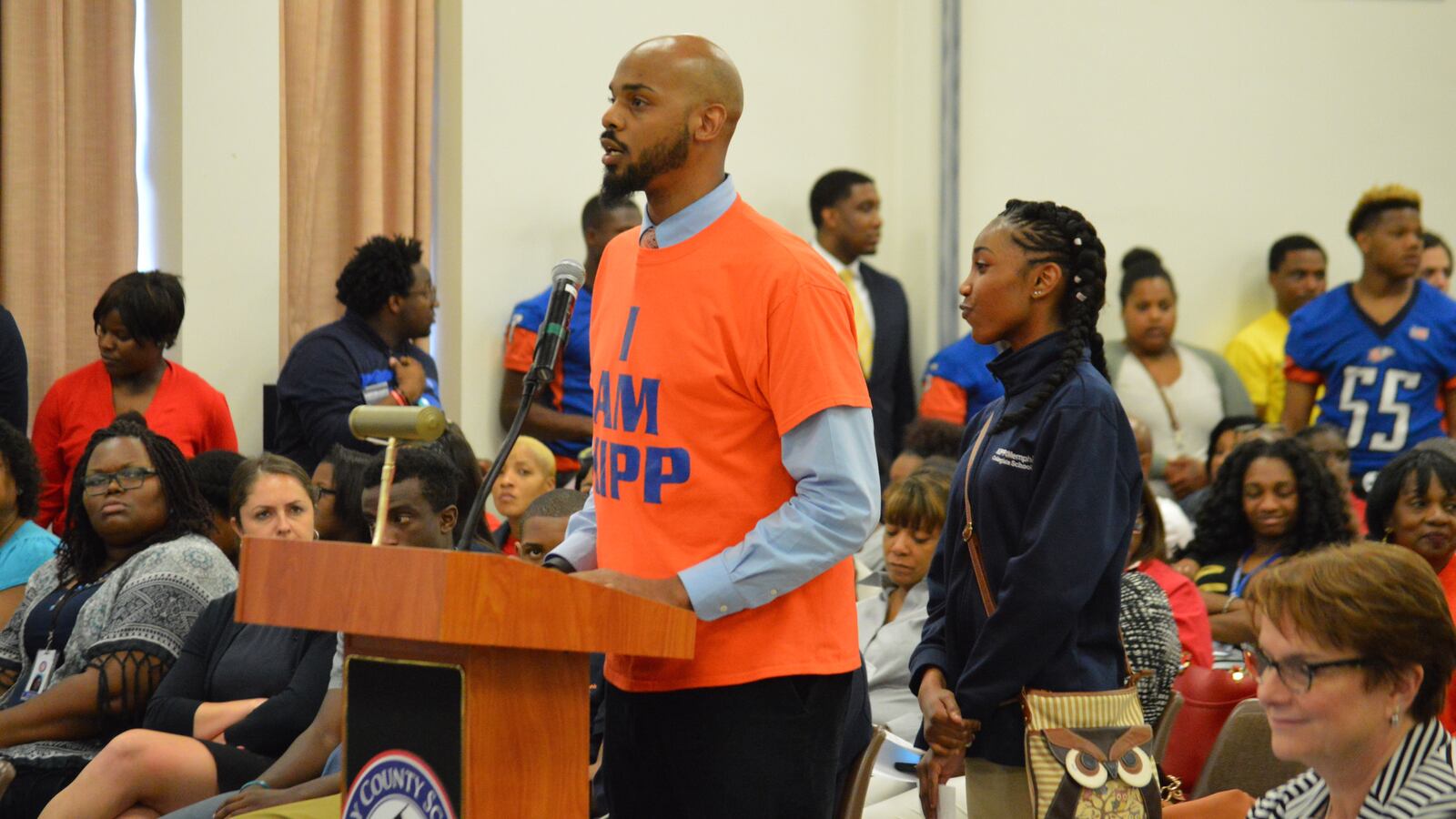When the incoming co-principal of KIPP Memphis Collegiate Middle School woke up one morning in April, his phone was flooded with texts and email alerts. News had broken that KIPP Middle was one of six Memphis charter schools up for closure due to poor academic performance.
“The gut-check reaction from me was, ‘Where did this come from?’” remembers Tim Pruitt, the school’s current assistant principal.
Pruitt wasn’t the only charter leader left surprised and scrambling. Superintendent Dorsey Hopson’s announcement that cash-strapped Shelby County Schools was considering the closures came suddenly and unexpectedly. Furthermore, the hastened 13-day prelude to a school board vote left little time to mobilize charter communities to make their case.
KIPP eventually was spared and given another year to improve test scores, while the school board voted to begin the process of revoking the charters of three other schools. Still, the harried episode caused confusion for the city’s charter sector, while also elevating the pleas that operators have voiced for some time: Give us clear criteria and policies, particularly when it comes to revoking our charters and closing our schools.
The vehicle for pounding out this criteria is already in place. In January, the school board voted to create a charter-district compact to work out the challenges that arise amid a growing charter sector. Since becoming part of Memphis’ education landscape beginning in 2003, the number of charters has grown to 45 authorized by Shelby County Schools and 22 more authorized by the state-run Achievement School District.
However, the initial compact agreement doesn’t specifically address the sticky issues that often arise such as criteria for school closures, how facilities are used, and how charter schools get funding to serve students with disabilities. That difficult work is being delegated to a new committee.
Ironically, the school board approved the structure and appointments to the committee on the same evening that it voted to begin the process of revoking the charters of Omni Prep Academy Lower and Middle schools and Southern Avenue Middle. The operators of those schools have since appealed the board’s action to the State Board of Education, citing the district’s lack of closure procedures.
For charter school principals such as KIPP Collegiate Middle’s Bryan Seay, the compact ideally would outline clear guidelines around performance and accountability, so that charter operators know exactly where they stand with the local district. He said that his school received no prior communication that they were in danger of being shuttered.
“All of that stuff just seems like it came out of the blue,” Seay said.
That’s not completely true, since all six charters on the chopping block are in the state’s bottom 10 percent of schools based on student achievement. However, they also are not the worst-performing charters in the district, according to the state’s recent list of schools that could make Tennessee’s priority school list next year, making them eligible for state intervention.
Still, Seay called this spring’s accelerated timeline of the closure process “unprecedented” and questioned if the district is committed to developing a meaningful charter compact. Furthermore, he said the district’s knee-jerk efforts to close KIPP Middle has made many of his students’ parents distrustful of KIPP leaders.
“In their minds, it’s hard for them to believe that this would happen so late in the school year, and we wouldn’t have known anything about it,” Seay said.
Currently, Shelby County’s school board can vote to revoke a charter for failing to meet criteria that charter operators set in their agreements with the district. Having a standard for guidelines could eliminate this avenue, and Pruitt thinks a better process is in order.
“I think what happens sometimes is that you have these charters who want to open a school, and they set lofty goals,” Pruitt said. “Even if they are a school performing in the top 60th percentile, but they said they would perform in the top 70th percentile, then they could be closed. And that’s dangerous.”
"I’m not voting to close anything until we have a procedure in place."
Chris Caldwell, school board member
Charter operators aren’t the only ones dissatisfied with the current process. School board members Chris Caldwell and Miska Clay Bibbs voted last month against revoking the schools’ charters due to a lack of procedure and clarity.
“I’m not voting to close anything until we have a procedure in place,” Caldwell said during the meeting.
“I’m a stickler for process,” Bibbs added later. “Even with laws in place (around school closures), I think we have to be thoughtful, careful, and strategic around what we do.”
Bibbs and fellow board member Stephanie Love have spearheaded the effort to form the charter compact and the accompanying 27-member Charter Compact Advisory Committee, which includes a mix of stakeholders from both the district and the charter sector.
Bibbs hopes the compact will establish transparency around everything the school board does related to charter schools.
“Some were saying we needed to close schools in the bottom 5 percent, some were saying bottom 10 percent. … That’s where clarity is needed because, at the end of the day, we are talking about the lives of families and children.”
Correction: May 12, 2016: A previous version of this story incorrectly stated that all six Memphis charter schools considered for closure this spring rank academically in the state’s bottom 5 percent of schools. The story has been corrected to show that all six rank in the bottom 10 percent.


